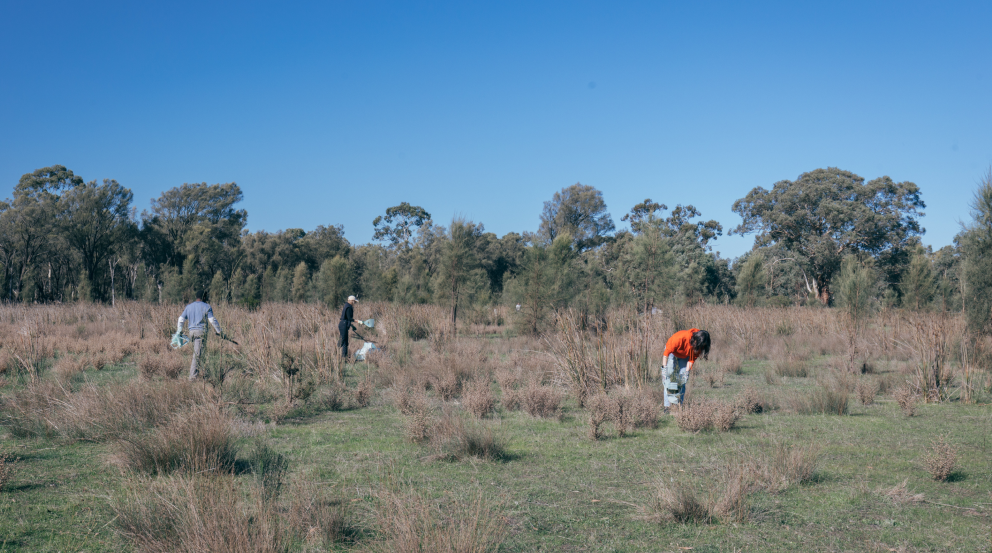In the heart of Victoria’s coal country, one Bank Australia community grant recipient is doing everything it can to help the region transition away from fossil fuels. Here’s how Gippsland Climate Change Network is making a difference.
Long-time Bank Australia customer Gippsland Climate Change Network (GCCN) has a fascinating gig. Their patch is Gippsland, in eastern Victoria, which has traditionally been one of the biggest coal-producing basins in the world.
Getting community groups and local government to take renewables seriously has been the GCCN’s mission since 2005. The good news? They’re starting to see the tide turning.
“Gippsland is an interesting place,” says GCCN CEO Darren McCubbin. “It has an industry which has been very protective of coal. We’ve provided most of Victoria’s energy since the 1920s, and yeah nearly all of that has been brown coal, but that means it’s easy for us transition into renewables. We’ve got this massive electrical infrastructure just sitting there!”
In 2021, GCCN was a recipient of Bank Australia’s Impact Fund community grants program. They’ve been using the money to boost the Energise Gippsland Renewable Fund, which provides low-cost, fixed-term secure leases to Gippsland businesses, community groups and organisations, smoothing the transition to renewable power. “When I say ‘low interest’, they’re virtually no interest,” Darren says. “It’s a revolving fund. So when we get the money back, we just funnel it into new projects.”

Many of these projects are local community organisations, which run on tight budgets and can’t afford up-front solar installation costs. There’s the Baw Baw Food Hub, a not-for-profit in Warragul that allows organic farmers to sell direct to consumers; GCCN put an 18kW system on their roof. There’s Earthworker Co-Op, another Bank Australia customer, which is Australia’s first community-owned clean energy manufacturer; GCCN popped a 19.5kW system on their building.
“It’s run as a workers’ cooperative,” Darren says. “They basically take employees who have transitioned away from brown coal, the old Hazelwood plant workers, and find them new jobs in renewables. We used $5,000 of Bank Australia money on that project.”
“Just like in the Hunter Valley, people don’t really care what job it is, as long as there’s a job,” says GCCN Chair and Wellington Shire Councillor, Carolyn Crossley. “Bolting solar panels together? That’s fine!”
But it’s not just smaller companies. Gippsland Climate Change Network helped install a monster 100kW solar system on the roof of Neerim South Hospital, one of the few remaining community-owned hospitals in Victoria. They’re also working with heavy emitters like AGL and big renewable projects, such as the Morwell Solar Farm and Star of the South, to re-shape Gippsland’s broader energy infrastructure.
During this crucial window of opportunity to avoid climate code red for humanity, it’s organisations like GCCN representing hope, pushing change forward, grinding it forward, one inch at a time.
“To me, it’s cultural change. You have to convince people by going out and doing it,” Darren says. “The challenge is that many community leaders here are still very much pro coal. In the last state election, I think 10 of 14 candidates actually campaigned for a new coal-fired power station in the Valley.”

“It’s starting to shift though,” Carolyn says. “There was a recent Environment Victoria poll of the Latrobe valley, which found that 76% of locals wanted governments to do more to transition away from coal and into renewables. So things are already happening.”
Darren says GCCN is proud to be a Bank Australia customer, mostly because of the bank’s stance on coal-based products. It’s about giving businesses, particularly in the Gippsland coal heartlands, a working example of how life-beyond-coal will look.
“We can point to dozens of organisations who are making those ethical decisions right now. What I always say is: coal-fired power stations. Great idea. You go get the market to fund that, you go find one single investor. I’ll wait. Because I know the market is already funding my wind farm down the road. And where the market goes, we should go.”
Find out more about the Gippsland Climate Change Network.
.webp)







